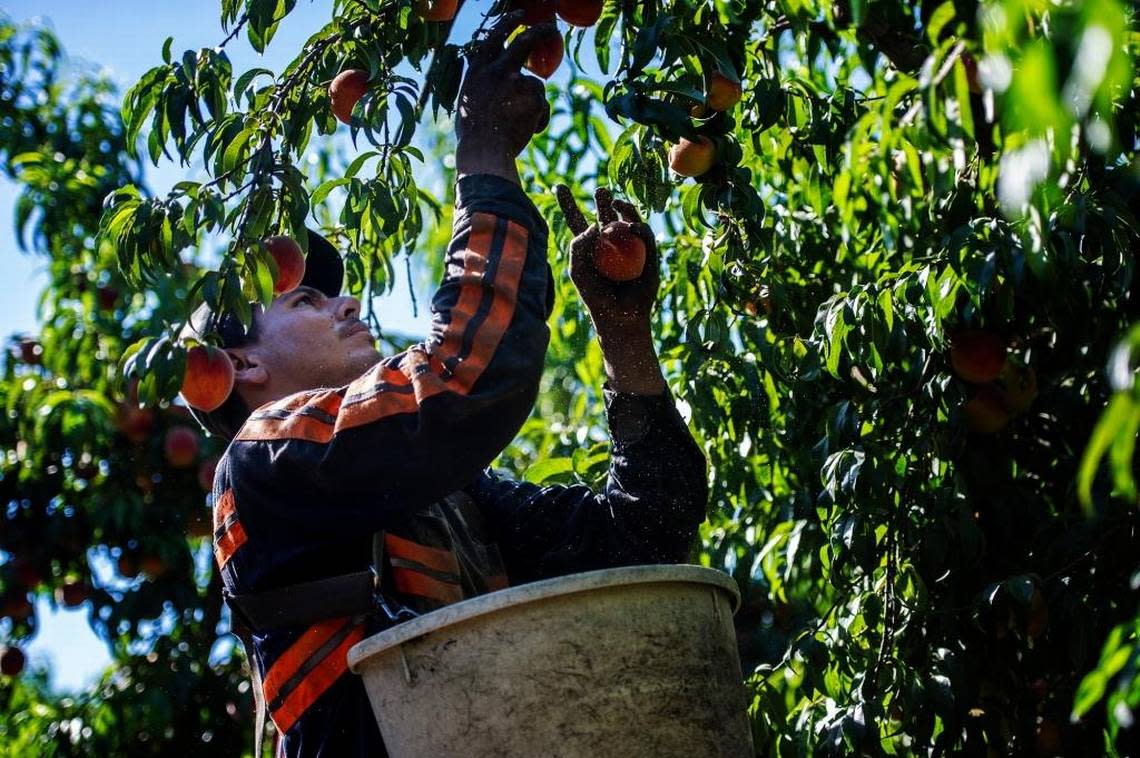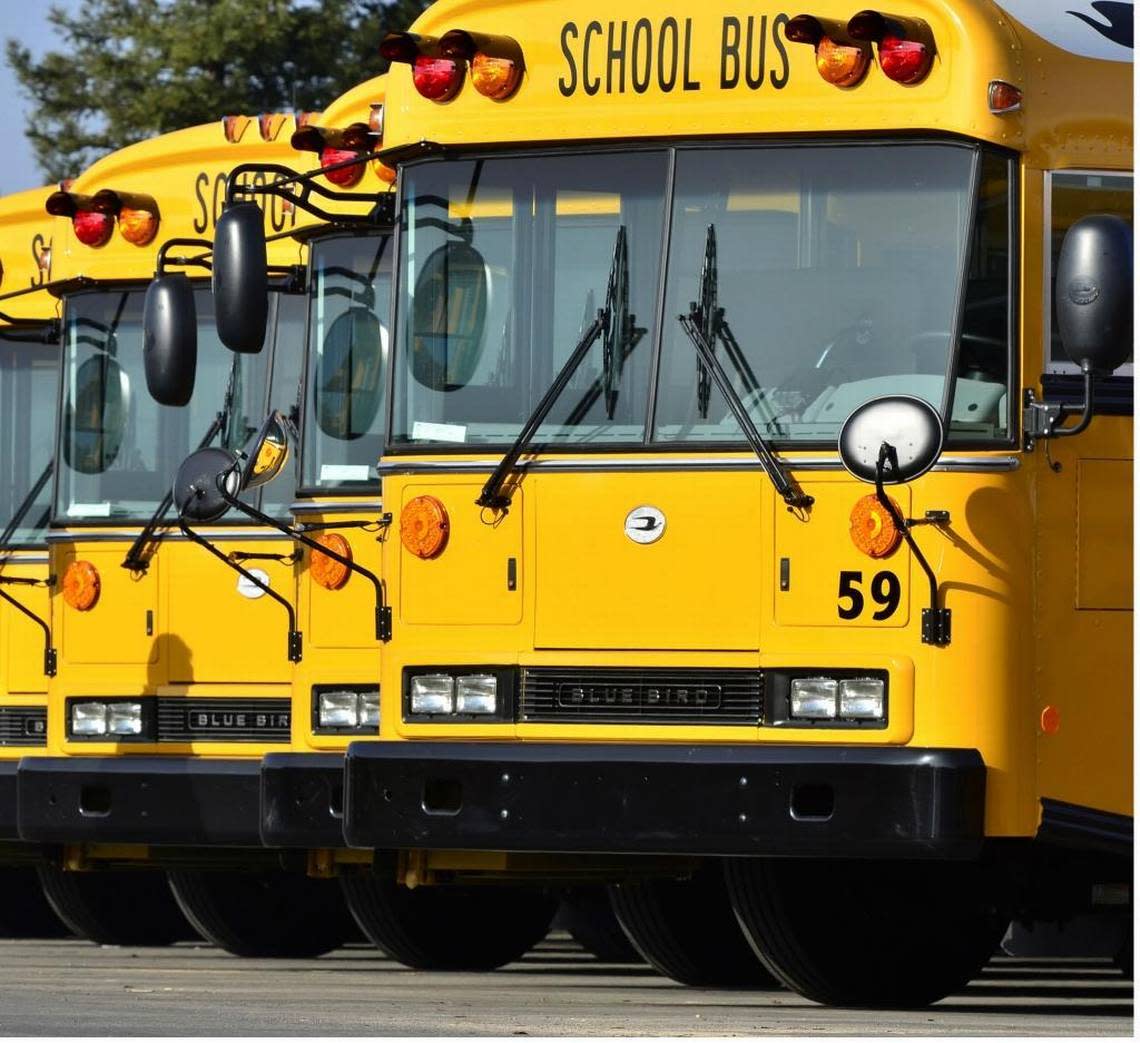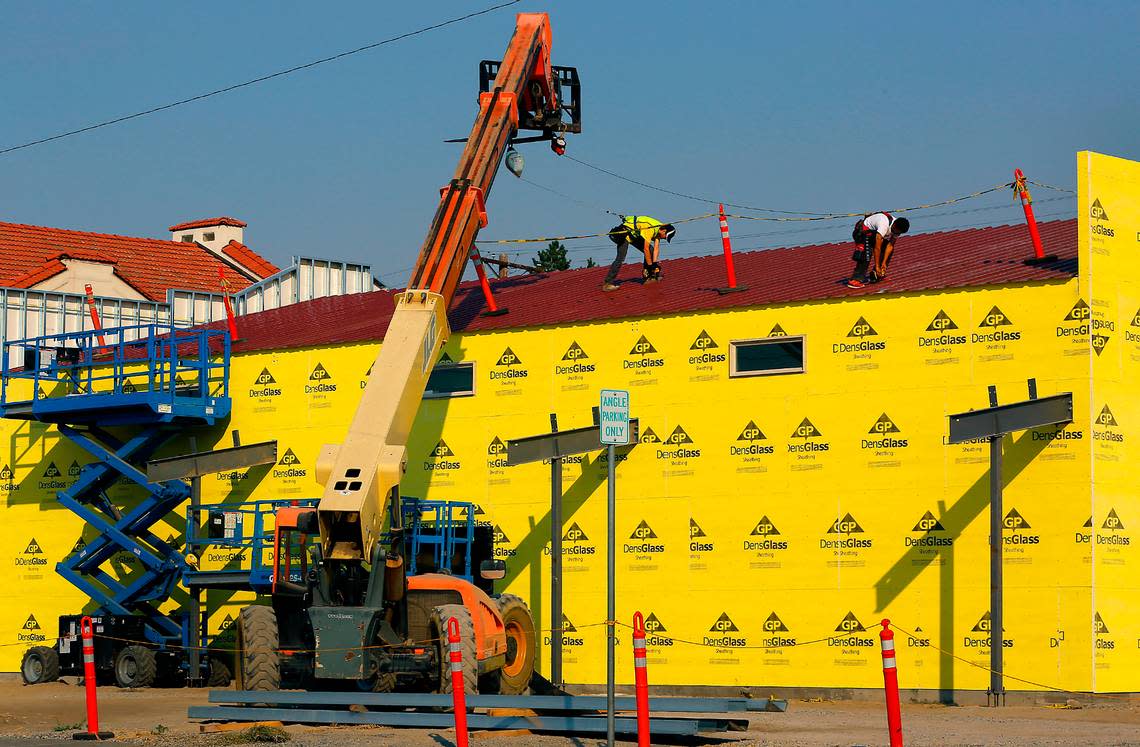Short work weeks and special forms. Five things you should know about teen work laws in WA
Washington is slowly rebounding from its labor shortage. The state has improved from 244,000 open jobs in March to 185,000 by June, according to data from the Bureau of Labor Statistics, but whatever way you shake it, there are still a vast number of openings.
As school swings into action, many employers may consider teenagers a possible solution to filling empty positions.
But before hiring a legion of teenagers — or teens rushing to find a job — Washington has labor laws to protect workers under the age of 18. There is also an annual parent and school authorization form deadline of Sept. 30 approaching.
As an employer, teen worker or parent, here are five things you need to know about Washington’s minor labor laws.
1. Minor work permit
Every workplace that employs at least one person under 18 must apply for a minor work permit. Applying for a minor work permit does not cost any money, but additional fees such as a business license application fee and registering your business as a trade name will cost a variable fee.
Some fields also allow children under the age of 14 to work, primarily agricultural or theatrical work, as youth sports referees, or casual labor jobs such as delivering newspapers or babysitting.
Employers hiring children under 14 will also need to obtain superior court approval, a minor work permit, and a parent or guardian authorization form.

2. Authorization forms
In addition to a minor work permit, employers must have signed a parent or guardian authorization form for summer work and a parent and school authorization form during the school year.
Both forms detail information about the employer, the employee’s wage per hour, and the allowed hours and work schedule for a minor.
Both forms must be signed if a minor begins working in the summer and continues work into the school year. The parent and school authorization form must also be signed by Sept. 30 of each year or whenever the employee’s work schedule changes.
3. Forms to verify employee age
You must keep the employee’s age information on file if you have a minor working for you.
For agricultural jobs such as harvesting produce, the employer must have one of the following documents on file for one year: birth certificate, driver’s license, an insurance policy that is at least one year old and that indicates the employee’s date of birth, baptismal or Bible record, notarized statement from a parent or legal guardian or a completed federal employment eligibility verification form.
For non-agricultural jobs such as restaurants or retail stores, employers must keep either the minor employee’s birth certificate and social security card, driver’s license, baptismal record, or a notarized statement from the parent or legal guardian on file.
4. Allowable working hours
Minors are not allowed to work the same hours as adults during the school year. The amount of hours minors are allowed to work also depends on the age of the employee and the type of work.
Minors are not allowed to work during school hours, and any week with any amount of school time is considered a school week, which determines how long minors can work compared to a work week with no school.

For minors working an agricultural job:
▪ Employees who are 12-13 years old are not allowed to work during school weeks. On non-school weeks, they are allowed to work eight hours a day for six days a week, with a maximum of 40 hours worked per week.
▪ Employees who are 14-15 years old can work three hours a day during school weeks, six days a week with a maximum of 21 hours worked per school week. For non-school weeks, they can work six, eight-hour long days with a maximum of 40 hours per week.
▪ Employees who are 16-17 years old can work six, four-hour days during a school week, with a maximum of 28 hours in the week. For non-school weeks, these minors can work six, 10-hour work days a week, with a maximum of 50 hours worked per week. If working in the mechanical harvest of wheat, hay or peas a 16 or 17-year-old can work 60 hours per week.
▪ Some exceptions apply to these rules. Minors ages 14-17 are allowed to work seven days a week during school and non-school weeks if they work in dairy, livestock, hay harvest or irrigation. Employees who are 16 or 17 years old can also work any hours if they are married, a parent or emancipated.
For minors working a non-agricultural job:
▪ Employees who are 14-15 years old can work three hours a day during school weeks, six days a week with a maximum of 16 hours worked per school week. For non-school weeks, they can work six, eight-hour long days with a maximum of 40 hours per week.
▪ Employees who are 16-17 years old can work six, four-hour days during a school week, with a maximum of 20 hours in the week. For non-school weeks, these minors can work six, eight-hour work days a week, with a maximum of 48 hours worked per week. If the 16 or 17-year-old employees have a school week with a special variance, they can work six, six-hour days with a maximum of 28 hours in the work week. Only minor employees ages 16-17 can work overtime hours.
▪ Employees who are 16 or 17 years old can also work non-school week hours if they are married, a parent, are enrolled and taking college courses or have a high school diploma or GED.
5. Prohibited job duties for minors

Both federal and Washington state laws protect minors from doing some work that could be harmful.
In any industry, minors are prohibited from:
▪ Roofing.
▪ Meat processing, slaughtering, rendering and packing.
▪ Wrecking, demolition or excavation or handling explosives or any blasting agents.
▪ Any work with circular, band or chain saws, power-driven woodworking machines or power-driven metal forming, shearing or punching machines.
▪ Handling or exposure to highly toxic, poisonous, corrosive or carcinogenic chemicals.
▪ Working where a labor dispute, strike or lockout is taking place.
In any industry minors under 16 are prohibited from:
▪ House-to-house sales or public messaging work.
▪ Driving an automobile, or unloading or loading trucks.
▪ Operating or cleaning food processors or meat slicers, or cooking and baking.
▪ Maintenance or repair work in gas stations.
▪ Amusement park work.
▪ Handling any power-driven machinery or using ladders or scaffolds.
▪ Construction, manufacturing or processing work.
▪ Any transportation, storage or warehousing work near conveyors.
In non-agricultural jobs, minors are also prohibited from:
▪ Operating forklifts, tractors, paper/cardboard balers, compactors, boilers or other heavy equipment.
▪ Working higher than 10 feet off the ground or floor level.
▪ Working a job where hearing or respiratory protection is required.
▪ Most driving to make deliveries on public roads or flagging or selling items to motorists on a public roadway.
▪ Operating powered meat slicers, grinders or powered bakery equipment and working in meat coolers or freezers.
▪ Working alone past 8 p.m. without adult supervision.
▪ Mining, firefighting or fire suppressing or working in an engine room.
▪ Manufacturing products such as bricks, tile or similar materials.
▪ Working in a position with possible exposure to bodily fluids, infectious agents or working as a nurse assistant/aide, unless the minor is enrolled in or has completed a nursing program.
▪ Working in adult-oriented business such as tattoo parlors, massage parlors or saunas.
In agricultural jobs, minors are also prohibited from:
▪ Handling dangerous pesticides.
▪ Handling anhydrous ammonia.
▪ Harvesting crops within 14 days of applying chemicals or before the pre-harvest interval, or the time between applying the last pesticide and harvesting crops that must pass, expires.
Minors ages 14-15 working agricultural jobs are also prohibited from:
▪ Driving with passengers in a car, bus or truck or operating a tractor with a horsepower over 20.
▪ Handling machines such as mowers, hay balers, grain combines and corn pickers.
▪ Working on a ladder or scaffold over 20 feet high.
▪ Performing warehouse and storage work, construction work or transportation.
▪ Working in a pen, farmyard or staff with a boar, bull or stud horse.
▪ Meatpacking, food processing or any manufacturing work.
▪ Working inside a grain or fruit storage area with an oxygen-deficient or toxic atmosphere.
▪ Working in a manure pit.
